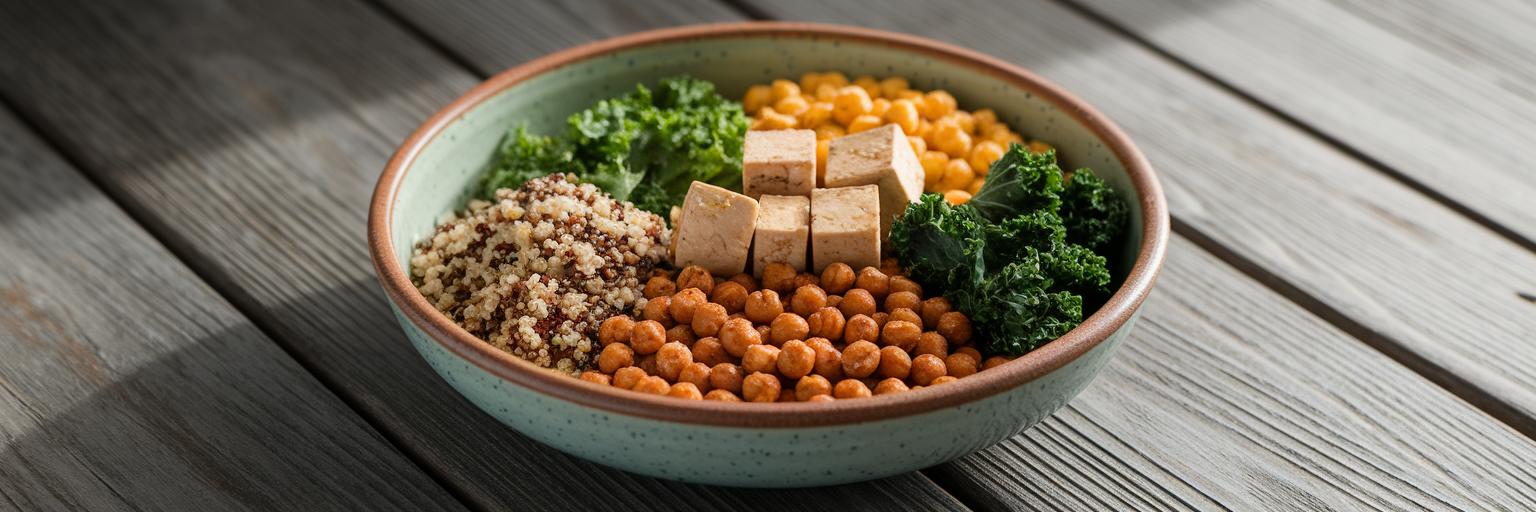Calculating Your Daily Protein Needs
The physical demands of long-distance running and cycling place significant stress on the body. This stress increases protein requirements far beyond those of a sedentary person. Research from the International Society of Sports Nutrition suggests that endurance athletes often need between 1.2 and 2.0 grams of protein per kilogram of body weight daily. This isn't just about building bulk; it's about fundamental repair and energy production.
Every long run or ride creates microscopic tears in your muscle fibers. Protein provides the amino acids necessary to repair this damage, making you stronger and more resilient. It also plays a vital role in supporting mitochondrial function, which is essential for converting fuel into usable energy during prolonged exercise.
To make this practical, consider a 70kg (154lb) athlete. Their daily protein target would be between 84 grams (70 x 1.2) and 140 grams (70 x 2.0). When determining how much protein for cyclists or runners is optimal, this calculation serves as a crucial starting point. A common misconception is that achieving this on a vegan diet is a challenge. We believe it’s simply a matter of strategic planning, not limitation. With the right knowledge, a plant-based diet can effectively fuel the most demanding athletic goals. For more nutritional insights to complement your training, you can explore the resources on our Beyond Good Foods blog.
Top Plant Protein Sources for Sustained Energy

Knowing your protein target is the first step. The next is identifying the best vegan protein sources to meet it without feeling weighed down or compromising on energy. The most effective plant-based foods for endurance athletes are those that offer a powerful synergy of protein and complex carbohydrates. This combination provides the building blocks for muscle repair while delivering slow-release energy to prevent performance dips.
Whole foods should always be the foundation of your nutrition plan. Here’s a look at how some popular plant-based foods stack up, offering more than just protein.
| Protein Source | Approx. Protein per 1 Cup (Cooked) | Key Nutritional Synergy |
|---|---|---|
| Lentils | 18g | High in fiber and iron for oxygen transport |
| Chickpeas | 15g | Rich in complex carbs for slow-release energy |
| Quinoa | 8g | Complete protein with all nine essential amino acids |
| Tofu (Firm) | 20g | Versatile and excellent source of calcium |
| Beyond Good Foods Vegan Protein | 25g per scoop | Concentrated protein for rapid muscle repair |
The old idea of meticulously combining proteins at every meal has been simplified. A varied daily intake of sources like these typically provides all the essential amino acids your body needs. However, convenience is key for busy athletes. After a long training session, a high-quality vegan protein powder becomes an invaluable tool. It delivers a concentrated dose of protein for efficient recovery. We believe recovery fuel should be both effective and enjoyable, which is why we focused on creating a formula with a smooth texture that avoids the chalkiness common in other plant proteins. To see how these ingredients can be used in delicious and simple meals, you can find inspiration in our collection of easy vegan protein recipes.
Strategic Protein Timing for Peak Performance
With the right protein sources in your kitchen, the next piece of the puzzle is timing. Proper endurance athlete meal timing can make a significant difference in your energy levels and recovery speed. It ensures your body has the fuel it needs exactly when it needs it. Think of your nutrition in phases around your training.
1. Pre-Training Fuel: About three to four hours before a long run or ride, consume a meal rich in complex carbohydrates with a moderate amount of protein. A great example is a bowl of oatmeal with seeds and berries. Then, 30 to 60 minutes before you start, a small, easily digestible snack like a banana can top off your energy stores without weighing you down.
2. The Critical Recovery Window: We all know that feeling of finishing a long workout, completely spent. What you do in the next 30 to 60 minutes is crucial for recovery. During this window, your muscles are primed to absorb nutrients. Consuming 20 to 40 grams of protein helps kickstart the muscle repair process immediately.
3. The Protein and Carb Partnership: Post-workout, protein shouldn't work alone. Pairing it with fast-acting carbohydrates helps replenish your depleted glycogen stores. Think of it this way: carbohydrates are the crew that refills your energy tanks, freeing up protein to act as the specialized repair team for your muscles. A simple and effective way to hit this window is with a recovery shake. For example, blending a scoop of our Chocolate Vegan Protein with a banana and plant-based milk delivers that ideal protein-carb combination.
Advanced Recovery and Hydration Strategies

Once your daily nutrition and timing are dialed in, you can focus on advanced strategies to accelerate recovery and maintain consistency. Effective plant-based recovery for runners and cyclists goes beyond just protein shakes. It involves a holistic approach to replenishing everything your body loses during intense effort.
First, focus on intelligent hydration. Endurance athletes lose more than just water through sweat; they lose critical electrolytes like sodium and potassium. As a study in Nutrients highlights, maintaining electrolyte balance is crucial for sustained performance. Instead of just water, consider options like coconut water or adding a pinch of mineral-rich salt to your post-workout drink.
Next, consider other supplements that aid recovery. Beyond anti-inflammatory foods, other compounds can support performance. For instance, many athletes are exploring the advantages of creatine, and you can learn more about how effective creatine monohydrate really is in our detailed guide. Finally, address the practical challenge of food volume. Meeting a high protein target with whole foods alone can be difficult. This is where concentrated vegan protein for endurance athletes becomes a strategic tool, allowing you to hit your numbers without feeling overly full. Ultimately, all these strategies work in synergy with adequate rest. Sleep is when the real magic of muscle repair happens, turning your hard work and smart nutrition into tangible progress.



